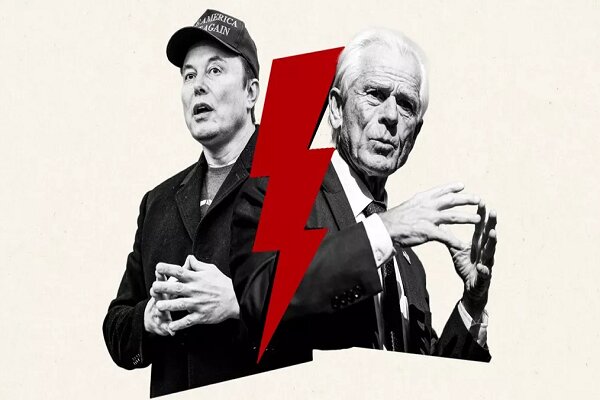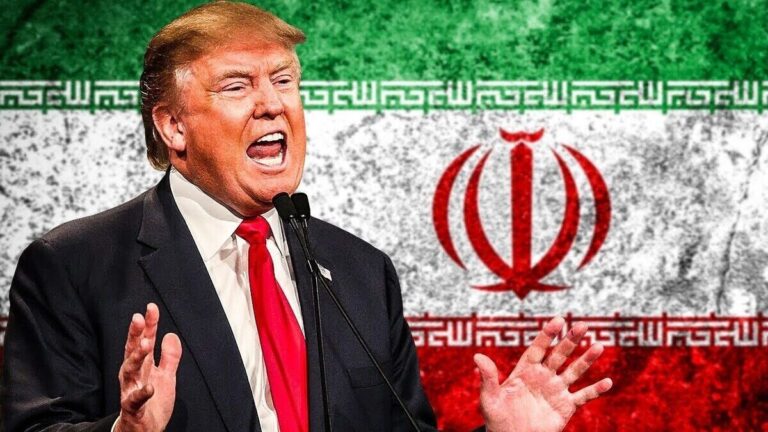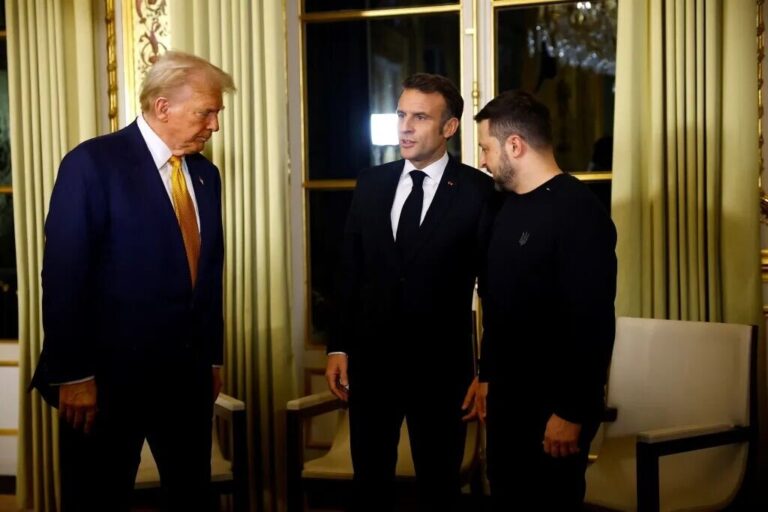Musk vs. Navarro: Navigating Economic Turmoil Amidst a Political Showdown
On April 9, 2023, the United States found itself embroiled in a significant political and economic crisis, primarily stemming from a public feud between Tesla CEO Elon Musk and Peter Navarro, a senior trade adviser to former President Donald Trump. This dispute over tariff policies not only underscored internal conflicts within the Trump administration but also raised alarms about the broader implications for both domestic and international economies.
The clash ignited following Trump’s announcement of extensive tariffs affecting imports from over 180 countries, with rates soaring to 104% on Chinese goods and 20% on products from the European Union. Navarro, a fervent supporter of these tariffs, argued that they would rejuvenate U.S. manufacturing and diminish trade deficits. In stark contrast, Musk, a champion of free trade principles, vocally opposed these policies, leading to a highly publicized confrontation.
On April 7, Navarro dismissed Musk’s calls for a “zero-tariff” policy during an appearance on CNBC, labeling Tesla merely as a “car assembler” dependent on imported parts. In response, Musk took to X (formerly Twitter) on April 8 to call Navarro “truly a moron” and to ridicule his Harvard economics PhD. Musk defended Tesla’s American manufacturing credentials, asserting that the Model Y is the most American-made vehicle, with 75% of its parts sourced domestically.
The media quickly picked up on the escalating tensions, prompting White House Press Secretary Karoline Leavitt to downplay the situation, remarking that it was merely a case of “boys will be boys.” Critics, however, contended that such a dismissal trivialized a significant policy disagreement with potentially far-reaching economic effects.
Key Factors Behind the Dispute
The feud between Musk and Navarro is rooted in deep ideological and economic divides, as well as personal rivalries. Several factors contributed to the escalating conflict:
- Protectionism vs. Free Trade: Navarro has long advocated for tariffs to protect U.S. industries and lessen dependence on foreign imports. His involvement in shaping Trump’s tariff strategy, part of Project 2025, reflects his conviction that high tariffs will create jobs domestically.
- Musk’s Global Business Perspective: As the head of Tesla and SpaceX, Musk favors free trade due to his reliance on global supply chains. He argued that tariffs would increase costs for consumers and stifle innovation.
- Economic Self-Interest: Both figures stand to gain or lose significantly based on the outcome of the tariff policies. Navarro’s position hinges on the success of Trump’s strategy, while Musk faces billions in potential costs from these tariffs.
The contention also highlights a broader power struggle within the Trump administration. Musk, serving as the head of the Department of Government Efficiency (DOGE), has emerged as a crucial adviser focused on deregulation and innovation. Conversely, Navarro, in his role as senior counselor for trade and manufacturing, wields considerable influence over trade policy. This rivalry showcases competing visions for Trump’s economic agenda, with Musk advocating for technological advancement, while Navarro pushes for industrial revival.
Political Consequences and Economic Ramifications
This high-profile conflict has significant implications for Trump’s administration, exposing internal discord among key advisers and challenging the image of decisiveness that Trump seeks to project. The casual dismissal of the dispute risks undermining trust within the cabinet and amongst advisers.
Moreover, Musk’s strong opposition to the tariffs could hinder Trump’s ability to advance his policy agenda. If Musk, a prominent ally, continues to voice dissent, it may signal to Congress and the public that even Trump’s supporters question the effectiveness of the tariffs. This dissent could empower opposition from Democrats and moderate Republicans, some of whom are already pushing for legislation to reclaim Congressional authority over trade policy.
The Trump administration’s recent implementation of reciprocal tariffs on imports from nearly every nation has strained relationships with both allies and adversaries. These tariffs, which range from 10% to 50%, have prompted swift retaliatory measures from affected nations, potentially leading to a more insular global economy.
Politically, the administration faces challenges in maintaining diplomatic alliances while managing the backlash from international leaders. For example, Australia’s Prime Minister criticized the tariffs as illogical and damaging to bilateral relations, while Brazil and China have voiced strong opposition, with Brazil contemplating appeals to the World Trade Organization and China condemning the tariffs as unilateral bullying. Such tensions could jeopardize the United States’ status as a global leader and disrupt the liberal international order.
Economically, the U.S. could see increased costs for businesses and consumers, potentially pushing the economy closer to recession. The tariffs may dampen global demand and production, adversely affecting U.S. manufacturers and international trade partners. Countries that rely on export-driven growth, particularly China, may find it challenging to adapt, further destabilizing the global economy.
The ripple effects of these policies underscore the interconnectedness of global economies and the critical need for diplomatic cooperation. While the Trump administration aims to prioritize American interests, the long-term outcomes could dramatically alter international trade dynamics and economic stability.
Public Protests and Broader Implications
The protests on April 6 against Trump and Musk also illustrate public discontent over their policies. Thousands gathered in major cities such as New York and Los Angeles to oppose Trump’s tariffs and Musk’s role in the administration. Signs reading “No to Tariffs, No to Billionaire Rule” encapsulated the anger directed at perceived elitism and economic harm. Concerns over potential job losses and environmental rollbacks under Musk’s DOGE leadership fueled the unrest, and the Musk-Navarro feud amplified worries about dysfunction within Trump’s team.
Protesters perceived the administration as prioritizing personal rivalries over public welfare, deepening skepticism regarding Trump’s leadership. Critically, the Musk-Navarro row reveals deeper flaws in Trump’s governance style, including a reliance on loyalists with conflicting agendas, a lack of coherent economic strategy, and a tendency to dismiss serious policy disagreements as mere personality conflicts.
The protests and the market sell-off on April 8 signal a broader crisis of confidence in the Trump administration. If left unaddressed, the conflict could destabilize Trump’s second term, alienate key allies, and accelerate economic decline. International partners, already wary of U.S. protectionism, may seek alternatives to American trade, further isolating the U.S. on the global stage.






